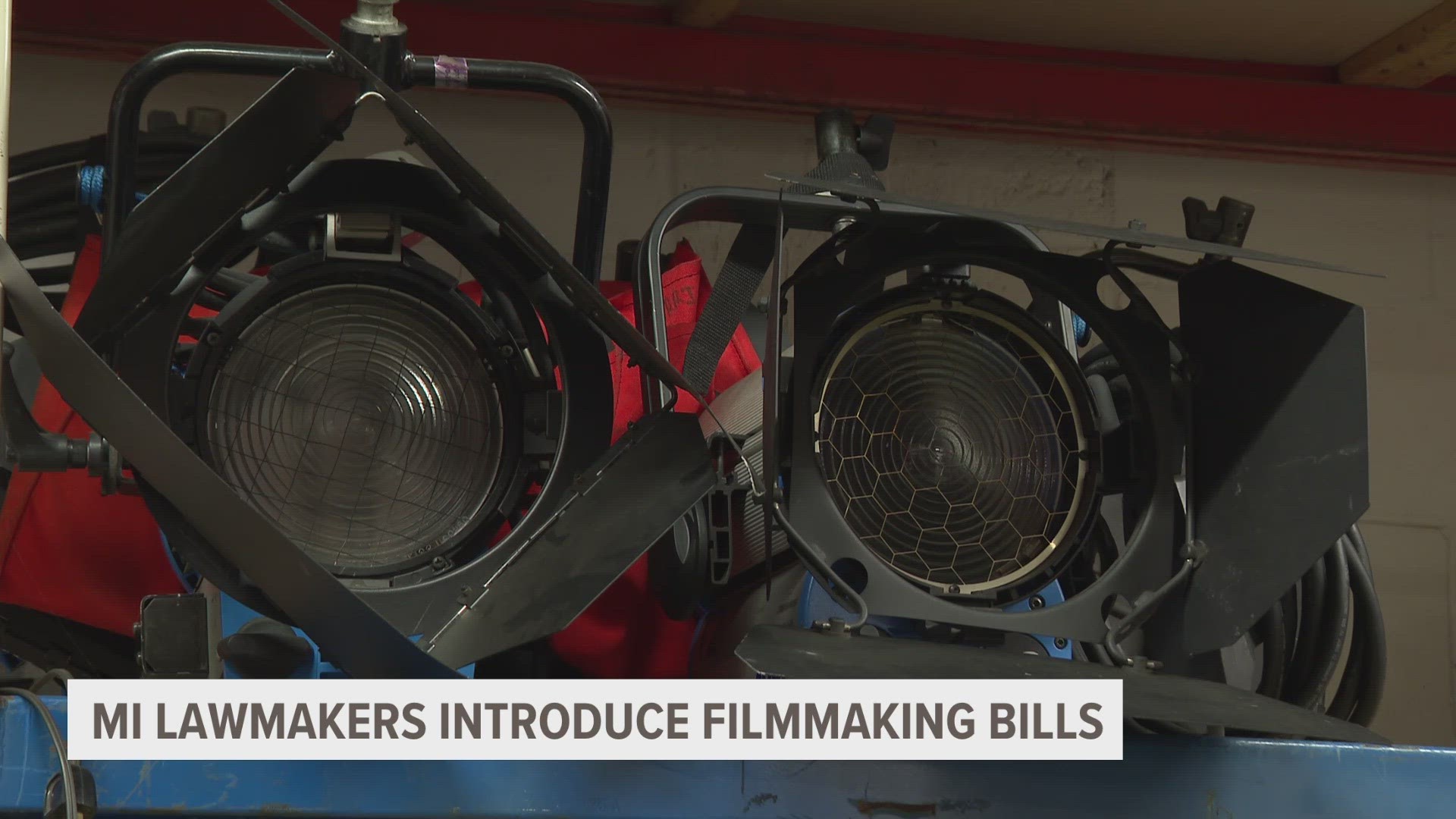GRAND RAPIDS, Mich. — Filmmakers from across Michigan are joining with state lawmakers to create measures to bring the major films of tomorrow to Michigan.
"At our studio, Black Pigeon Studios, we deal with a lot of the major production companies in West Michigan and Michigan as a whole," Black Pigeon's Co-Owner Josh Sikkema said. "They all say in unison the same thing. You know, we want our state to back our jobs and show up for us as well. It's a thriving community. It once was a thriving community, and it'll be that again."
The effort comes after film incentives established in 2008 were removed in 2015, making Michigan one of a handful of states that don't offer credits or incentives for the industry today.
However, the new changes feature key differences.
Whereas the previous measures included the chance for direct rebates to filmmakers, the new changes proposed in Senate Bills 438 and 439, referred to collectively as the Michigan Multimedia Jobs Act, would instead give them state tax credits.
"What that means is that it can only be used to offset Michigan taxes, so only a Michigan company can benefit," said the Michigan Film Industry Association's Legislative Action Committee Chair Alexander Page.
As currently written, the changes would apply to films, television programs, commercials, corporate videos, commercial photography and digital media.
But it isn't just the film industry, local filmmakers said, that could stand to benefit from bolstering Michigan's multimedia standing.
"Almost everybody [would benefit]," said David Lowing, owner of Lowing Light and Grip in Wyoming. "I've once heard termed, 'A movie comes into town is like dropping a boatload of cash.'"
From local restaurants and hotels to plumbers and carpenters, it takes a community, filmmakers said, to create the world of film.
"You can apply many 'blue collar skills' to the film industry, and that impacts anyone that may have those skills, and our entry level is quite accessible," said the Film and Media Alliance of West Michigan's Legislative Committee Chair Zachary Clark.
While Lowing and Clark said the lack of such measures has taken its toll on local filmmakers since 2015, the bipartisan support they say they've received makes them optimistic that this will be Michigan's turn in the spotlight.
"That gives me hope that this is not a niche act, but something that can really make an impact on this state and put it in competition with other states in the Midwest have similar programs," Clark said.
As currently written, the tax credit provisions would end after ten years unless renewed.
Sponsoring the bills, State Sen. Dayna Polehanki (D-Livonia) said the sunset would allow the state to reevaluate later on if needed.
"I think sunsets are put in place so that people can tap the brakes and say, 'Hey, is this working?'" Polehanki said. "If it's working, you continue. If it's not working, then you do not continue. So, I think it makes people feel better to have sunsets in place."
The bills are now on their way to the Michigan Senate's Economic and Community Development Committee.
While the Senate returns from recess next week, it will be one of only two weeks the chamber is scheduled to be in session until September.
Polehanki said she hopes the bills can get a hearing after the legislature returns from recess.
"We'd love to get a committee hearing in the Senate, I'm working on that," Polehanki said. "Hopefully, we'll have that hearing this fall and people can learn more about it and get it introduced in the House as well."
►Make it easy to keep up to date with more stories like this. Download the 13 ON YOUR SIDE app now.
Have a news tip? Email news@13onyourside.com, visit our Facebook page or Twitter. Subscribe to our YouTube channel.
Watch 13 ON YOUR SIDE for free on Roku, Amazon Fire TV Stick, and on your phone.

